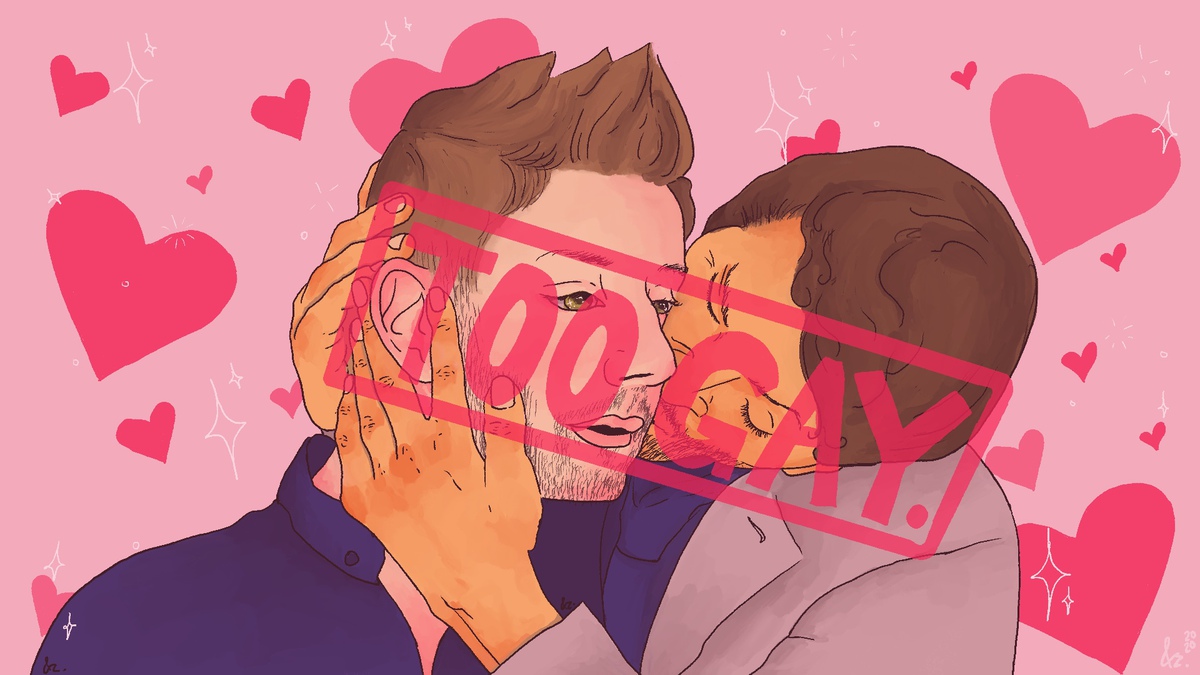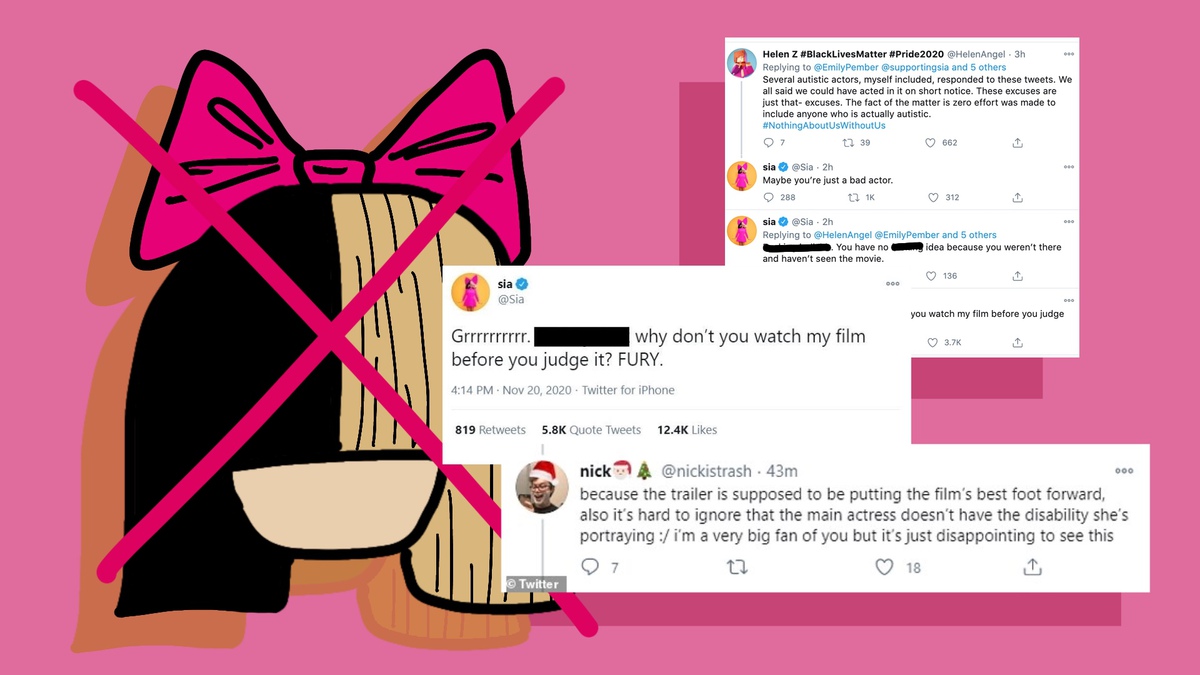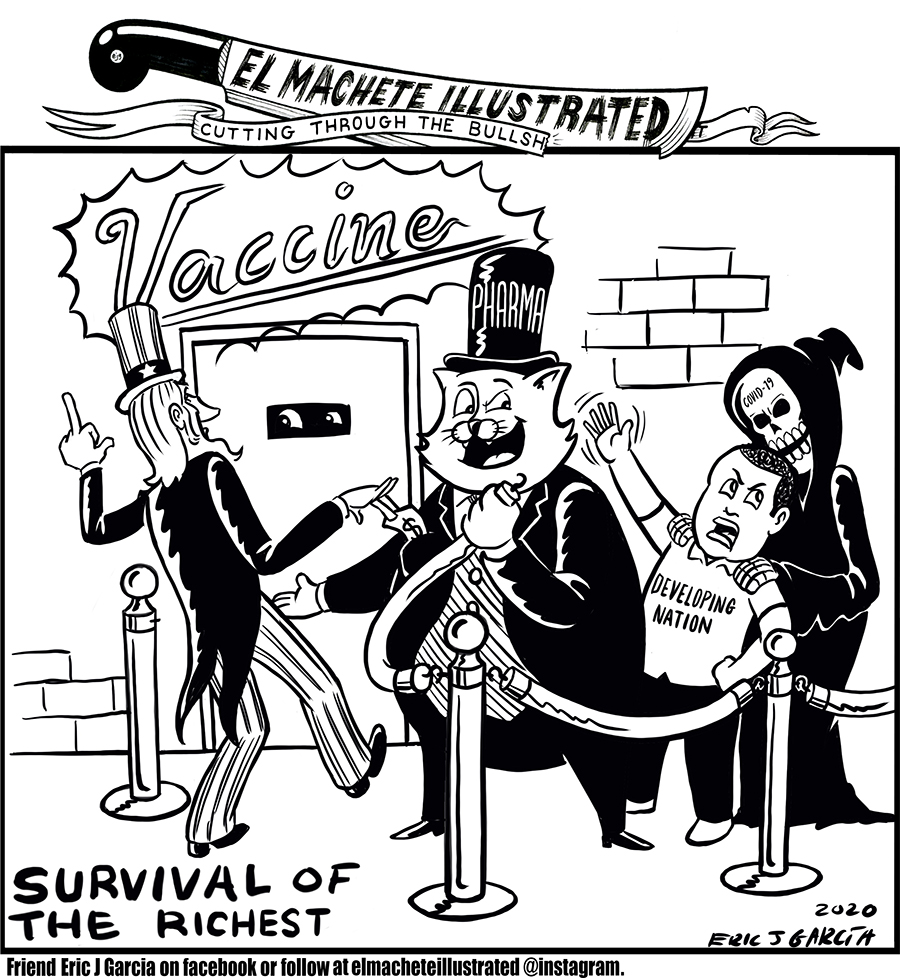
Consider the network TV drama. Once a week, eight months a year, with a mid-season break, and a summer hiatus. This network model is dead in the age of streaming, and as of November, “Supernatural,” the last great cult show of the network era, has breathed its last. For a brief, shining moment, it seemed like the show’s finale was going to break its own formula — and then, in the most cowardly manner possible, it did the exact opposite, succumbed to the old format, and ended in a mind-bogglingly stupid way that negated 15 years of character growth.
The character growth, specifically, of gun-toting, hard-drinking midwestern prettyboy monster hunter Dean Winchester.
First, let me explain how Dean operated in the narrative format. No matter what madness the cliffhangers or the season arcs wreaked, “Supernatural” always had to return to the same basic formula — weekly monster, road-tripping Winchester brothers Sam (the hulking Jared Padalecki) and Dean (the long-lashed Jensen Ackles). Because the show and the network wanted to attract the same viewing crowd to the same timeslot every week, the status quo was always reestablished. And on “Supernatural,” that status quo character was Dean. But because of that, the show never learned how to properly challenge him.
Dean wants to keep living the same life he and his little brother have lived since they were kids: He wants to drive the same black Chevy Impala his dad gave him, listen to the same 10 cassettes of ’70s rock, hunt monsters. Same car, same music, same life; Sam there, but Dean in charge, Castiel there but just as a friend. No change, no confrontation. In fact, Dean balks at change of the smallest kind — he’s cagey with outsiders, won’t let anyone else pick the music in the car, even gives Sam a hard time when he grows a beard. (Sam eventually shaves it.) When Sam talks about settling down and living a normal life, Dean is the one who says they were made for the hunting life, and that they can never truly give it up.
And as long as the show was to continue, this had to be the case. But there was always hope at the end of the tunnel — hope of an ordinary life of some kind, of raising kids and maybe giving them a better childhood than the one they had. There are a lot of reasons the finale failed, and each could fill its own article — it dropped plot threads irresponsibly, erased characters in ways that were sexist, ableist, and homophobic, to say nothing of the atrocious wigs — but it failed its central character, Dean, worst of all. It snatched away his chance for change and growth by taking away the one character who drove his character development, and instead indulging the showrunners’ cheap, outdated, male wish-fulfillment fantasy.
Stuck in Stasis
So why is Dean trapped in childhood patterns? It’s not just habit — it’s a maladaptive trauma response. Sam and Dean were raised by an abusive father. John Winchester often abandoned them for days at a time, leaving Dean, the elder brother, in charge while he went on a hunt or a bender. When he was around, John berated Dean while also expecting him to follow his orders without question. Dean carries this baggage very openly for the first few seasons — “Daddy’s blunt little instrument,” he calls himself in a vindictive dream monologue. Much of Dean’s early conflict stems from grappling with his father’s legacy, the impossibility of living up to his expectations coupled with the violent person he made Dean into.
But besides a lack of processing, the other reason Dean never changes is a meta one: Because to the writers, Dean Winchester is a male power fantasy. He’s an action hero, attractive, and charming, who loves ’em and leaves ’em, sleeping with women but always getting back on the road, Bon Jovi style. (At least until season 7, after which the one-night stands mysteriously stop… perhaps because he has someone else in his life filling that emotional space?) He’s a lone rider on the road, with his ’70s music, his tough-guy jackets, silver gun, and his sleek, black Chevy Impala with the trunk full of obscure weapons. He’s a James Dean (get it?), a “Rebel Without a Cause” (a film noted for its queer subtext).
So the showrunners gives Dean enemies and conflicts, but they are so enamored of this midwestern fantasy Han Solo concept that they don’t meaningfully address his character flaws — his anger and how it affects his loved ones, or his fierce, blind adherence to his status quo — the real legacies of John Winchester, handed down with the car.
Meanwhile, in spite of the writing, the lone rider is being played with such sympathetic complexity by Ackles that Dean un-flattens from a “tough guy” to a “traumatized guy wearing the tough guy persona as armor.” And living in a queer subtext to make Sal Mineo proud. Because there’s one person who does challenge Dean — unlike Sam, unlike the writers. That’s Castiel, Dean’s fallen angel best friend who’s in love with him.
Castiel the Catalyst
Castiel (cult darling Misha Collins) is originally a footsoldier of Heaven, ordered to rescue Dean from Hell and manipulate him into triggering the Biblical apocalypse. Cas — a nickname he receives from the Winchesters — comes to see the good in humanity through Dean, and rebels against Heaven to join his cause. From Season 5 onward they are brothers-in-arms, of a sort. (Like everything else on “Supernatural,” it’s complicated.) Cas and Dean’s constantly changing relationship and onscreen chemistry make them the most dynamic relationship on the show, outstripping the relationship with Sam sometime around when the showrunners give up on writing him long-term plot arcs.
But despite Cas’s devotion to Dean, he does not think Dean is perfect, and continues to challenge Dean when Sam stops doing so. Nowhere is this better seen than in the final three seasons, when Dean gets a chance to process his family trauma by raising a child of his own. Cas adopts Jack, the antichrist*, and the two celestial beings move in with Sam and Dean. Sam is an affectionate stepdad, but Dean is not — at first, he’s openly cruel to Jack, replicating his father’s toxic behavior. With Cas’s influence, Dean begins to grow out of it.
(* There is a reason I’m not giving very much background on the actual plot arcs of “Supernatural” and that reason is that the plots are consistently and magnificently insane. To give you a small sample, Cas’s adopted son Jack (the babyfaced Alexander Calvert), a nice young nephilim with unfathomable powers, is actually the child of Lucifer and a human woman, conceived when Lucifer possessed the body of the United States President. Lucifer didn’t do much else as the president, besides sleeping with an aide. It was a minor mid-season arc in Season 12, never really mentioned again. Produced before the 2016 election, by the way.)
Then, in early season 15, Jack is killed, and Dean, ever the emotionally constipated, takes his anger out on Cas. But Cas, rather than let Dean treat him badly, walks out on him. This argument arc lasts several episodes, a virtually unheard-of interval of emotional processing in 15 years of “Supernatural.” Cas doesn’t relent until Dean apologizes. Finally, he does, and it’s one of his most emotional speeches in the whole show.
“I don’t know why I get so angry,” he says to Cas, in a prayer. “I just know that it’s always been there. And when things get bad, it comes out. And I can’t stop it. … I’m sorry, Cas,” he says, “I’m sorry it took me so long to say it.”
There is no other character who gets that kind of introspection out of Dean. Castiel is the person who pushes Dean’s character development. And Castiel is in love with Dean. But this does not fit with the lone hero story that the showrunners decided they wanted to tell. And an intimate relationship with another man certainly does not fit with their straight male fantasy.
So instead, the show fridged Cas, putting a depressing end bracket on his story, and spelling disaster for Dean’s ending.
In the third-to-last episode, Castiel confesses his love to Dean before being snatched away by a cosmic darkness entity called the Empty. This confession of love and subsequent death (besides causing an unprecedented stir on Twitter and Tumblr) doomed the final two episodes of the show. With Castiel gone, Dean’s character arc stops all forward motion.
In the next episode, the penultimate of the show, Sam, Dean, and Jack defeat the big bad. (God Himself. Again, I’m not going to get into it.) And then in the finale, Sam and Dean go back to hunting, like always. They fight some vampires in a barn, save a couple of kids, and then Dean is accidentally impaled on a spike of rebar. He tells Sam not to call an ambulance, succumbs willingly, and dies.
Sam grows old on Earth without his brother. Castiel’s love confession is never mentioned again. Dean ascends to heaven, gets into the car he inherited from his dad, and drives off, alone.
Heaven is a Place in Hell
For the last 30 minutes of the finale, I watched, horrified, as Dean got steamrollered back into a flattened version of his season 1 self, and I thought back on all kinds of failed endings I’d seen before. Most of all, I thought about Jamie Lannister in “Game of Thrones,” who after seven grueling seasons, finally chose his own path and partner — only to take a u-turn back to his toxic childhood dynamic to die, like Dean. As Laura Hudson wrote of the “Game of Thrones” ending: “Nobody grows. Nobody gets better or more interesting. The story of ‘Game of Thrones’ right now is a story of regression, of spectacle over humanity.”
The spectacle in this case? It’s that goddamn car. When Dean reaches heaven, he gets his “heart’s desire,” which, apparently, is to drink some of the cheap beer his dad used to drink, and then get in his Impala and drive forever. I think the showrunners’ failure can be completely summed up by their treatment of the car. The car represents all the things Dean never got to grow out of. But the writers don’t see it that way. For them, in their fantasy of American masculinity, there is nothing sexier than that sleek black classic car. So he gets to keep the car, because they want to keep the car.
At the end of a good, well-written story, that car would be destroyed, or at least altered. If the story was going to challenge Dean, force him to undergo radical change, kill the man he used to be and bring back someone new like a phoenix from the ashes — which is what we want from a story — that car would be destroyed, “The Search for Spock” style. It would hurt, but it would mean a new beginning.
Perhaps most infuriating is the knowledge that to the showrunners, they didn’t write a tragic ending — to them, it’s a bittersweet victory.
But is this what Dean would have wished for? To die young (41) and go to a regressive heaven like this? Certainly yes, in season 1. But in Season 15? After everything he went through? After becoming a dad? Did he change in all that time, or didn’t he? I literally don’t know. The narrative never commits. If it was a successful story, he would have changed. And that would have meant that his desires changed.
We never find out how Dean, with his tendency towards stasis, would have dealt with the possibility of a changed relationship with Cas, his closest friend and co-parent. Nor do we know whether his early-season preference for women — notably absent for the latter half of the show — was something that could have changed in this special case. Because the show, rather than engage with this question, swept Cas offscreen, and then before there was any time for processing, killed Dean.
The show never truly challenged Dean to grow, in failing to do so, it damned him to an eternal stasis where his lonely childhood plays on repeat for eternity. This isn’t heaven. It’s purgatory. Maybe even hell. And now they’ve trapped him there forever — removing all possibilities for future change. The curtain drops with all possible futures closed, and so dies TV’s last monster-of-the-week show, TV’s last great will-they-or-won’t-they, and the last great network cult show — in a final act of cruel, cowardly, proprietary storytelling.








This is such good insight on the finale, especially for someone who watched it unfold pretty much in meme-format alone. Wow!